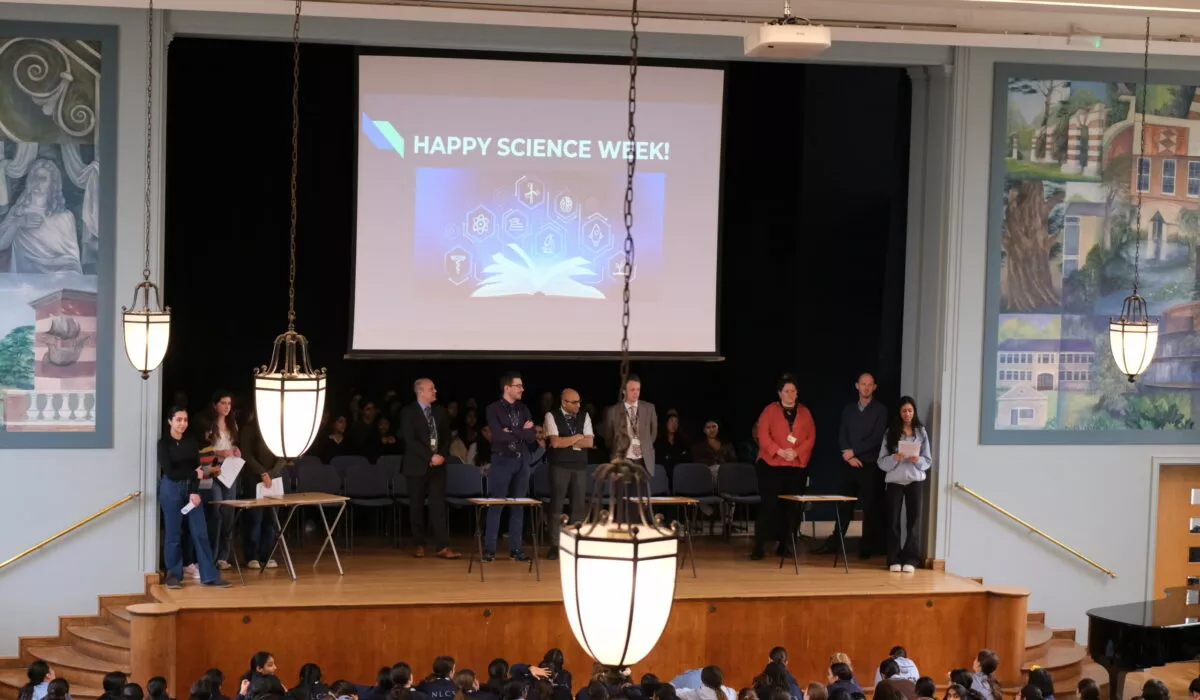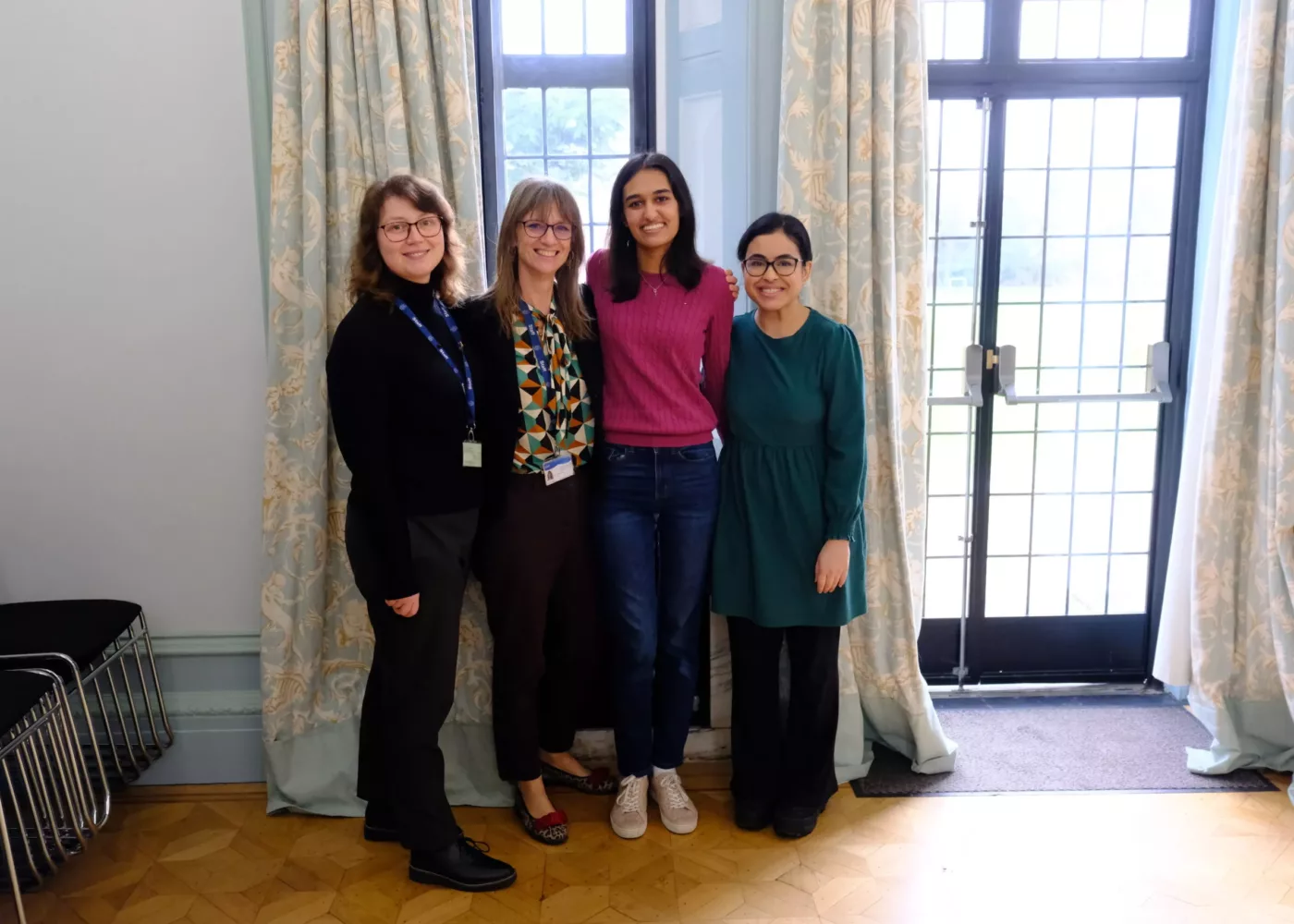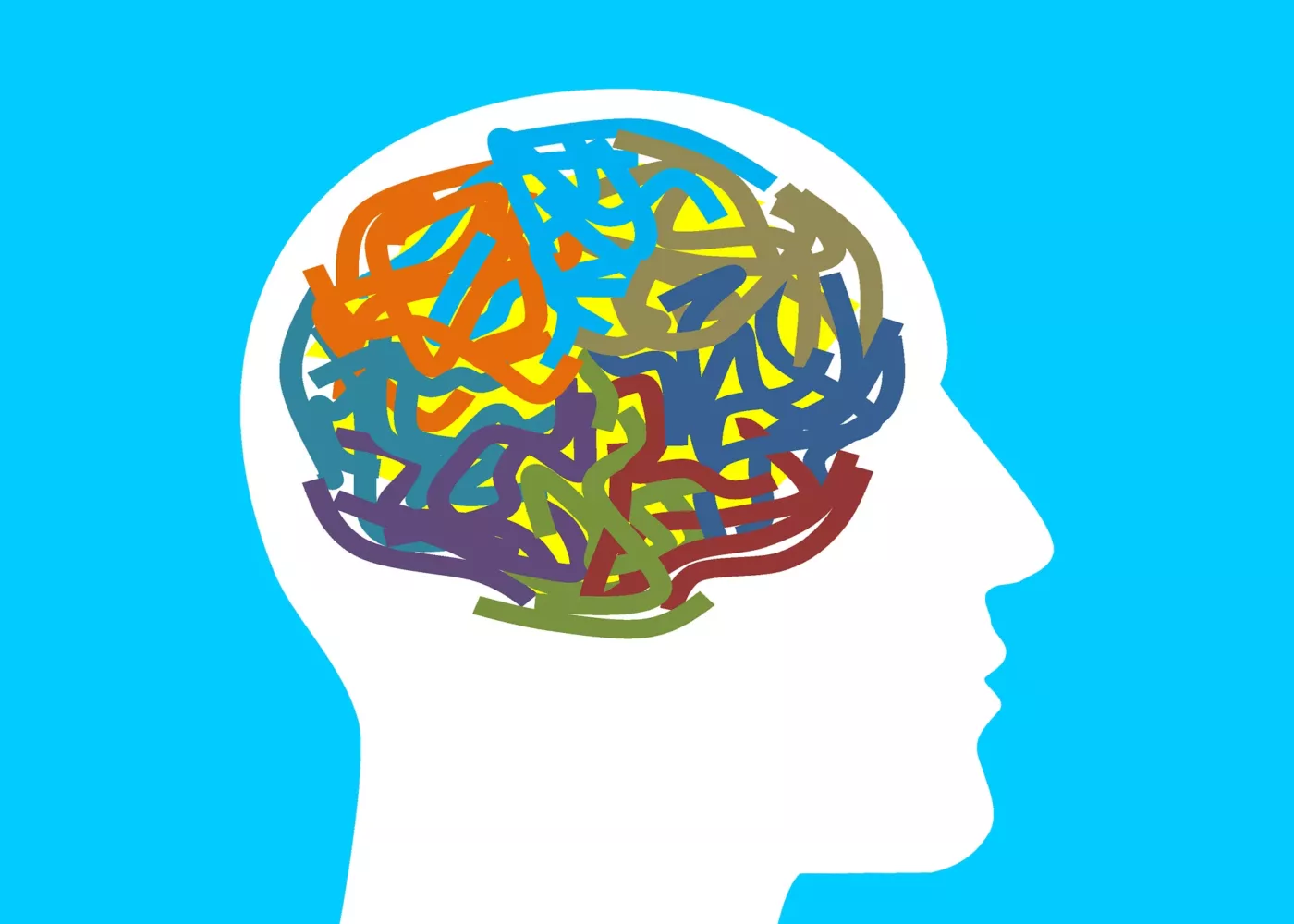Science Week at NLCS was again aligned with British Science Week this year, with events organised using the national theme of “TIME.” The week was filled with a variety of activities that showcased the enthusiasm and dedication of both staff and students across the faculty and school community.
In my assembly on Monday, I spoke about the many possible options for reference to time in science, but tried (unsuccessfully as it turned out, as I predictably ran out of time!) to summarise 14 billion years of history in the universe and the history of life on Earth in 14 minutes.
Throughout the week, we had at least one ten-minute talk running per day, following on from their popularity and success last year. On Monday, Dr Patel shared his postgraduate research at Imperial during his talk titled “Losing Your Gonads: Signals For a Longer Life”. This was followed up by Miss Rice sharing some of her university experience, including the lack of female Physics lecturers, in her talk on Gravitational Waves. On Wednesday we had a group of Year 12 IB students, under the charge of Mr Stoklas, delivering a really complex and interesting talk on Einstein’s special theory of relativity. On Thursday, we were treated to two engaging talks. Dr Jackson spoke about how plants are able to tell the time at Short Break, followed by Dr Gannarelli’s lunchtime talk on how the future is unlike the past. The finale of the week was Dr Silverman sharing his postgraduate research at McGill, where he gave an interesting overview of the real time evolution of bacteria in cystic fibrosis infections.
Across the week, we also had a variety of engaging activities taking place across different clubs and groups. Mr Bryers led a session exploring “Time Misdirection in Magic,” adding a touch of mystery and intrigue to the week’s events. The Philosophy Society delved into thought-provoking discussions on “The paradoxes of time travel,” stimulating intellectual curiosity among participants.
In another insightful session, the Medical Ethics discussion group addressed the critical issue of “Too little time in medicine; the Bawa-Garba case,” highlighting some major challenges in healthcare. The Upper School Chemistry club engaged in a hands-on experiment with the Classic Chemistry Clock reaction, fostering a practical understanding of chemical reactions among students.
The Astronomy Club ventured into a captivating discussion on “Time and Space in the Universe,” exploring the mysteries of the cosmos. Miss Glover, along with Year 13 students, organised a hands-on heart dissection during the Middle School Science club, providing a practical learning experience on “the ticker” for participants. Additionally, Science Café on Wednesday featured guest speakers from UCL who shared insights on “a day in the life of an industry researcher,” offering valuable perspectives on career paths and industry practices in the scientific field.
A standout moment during the week was Mr Rodrigues’ Nicholson Lecture on Monday titled “Chasing Shadows: Unleashing Photodynamics in the Fight Against Cancer,” which was not only intriguing and well-researched but also personalised, using his own childhood experience and subsequent research at university in South Africa.
Matt Hudson-Reeve, Head of Science


